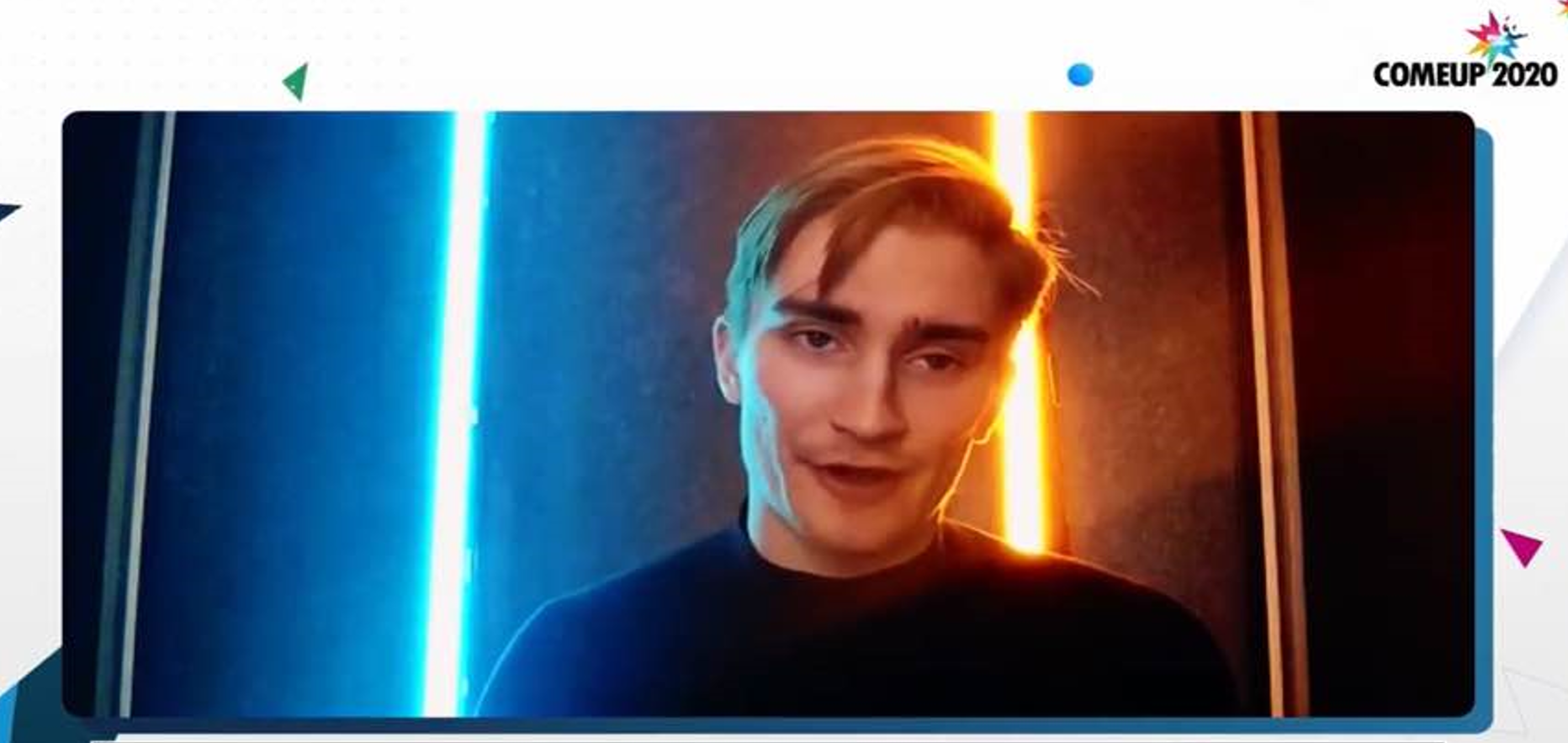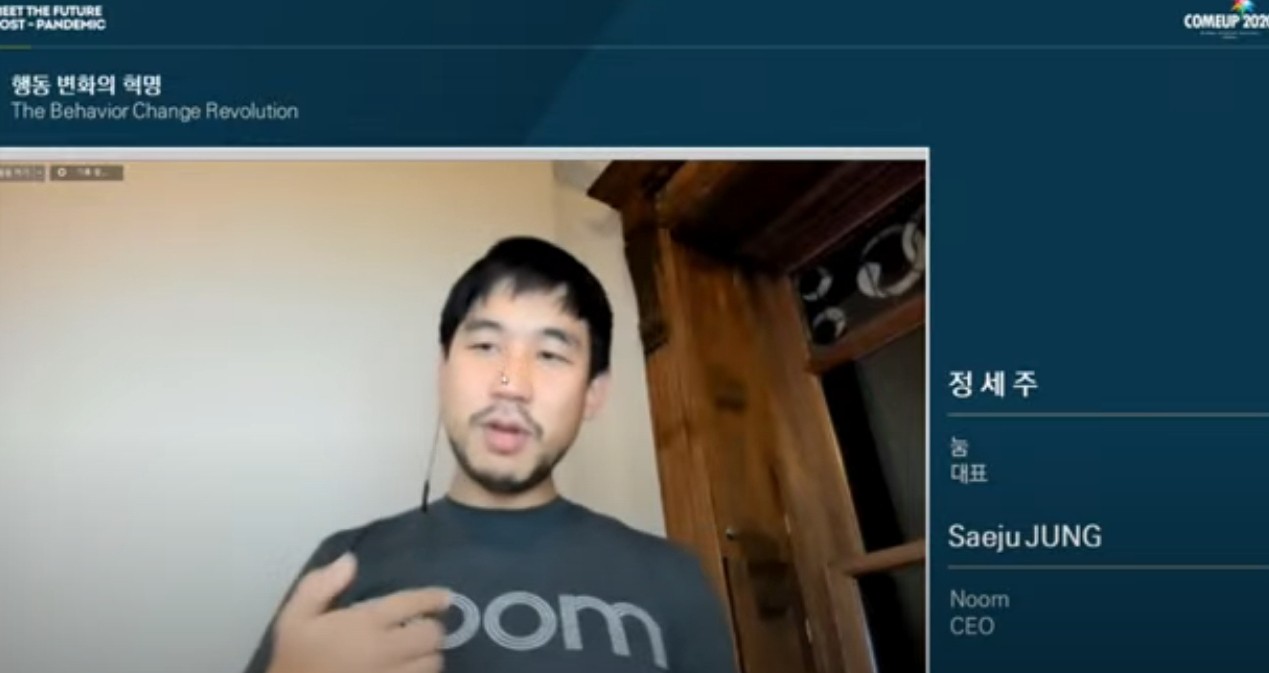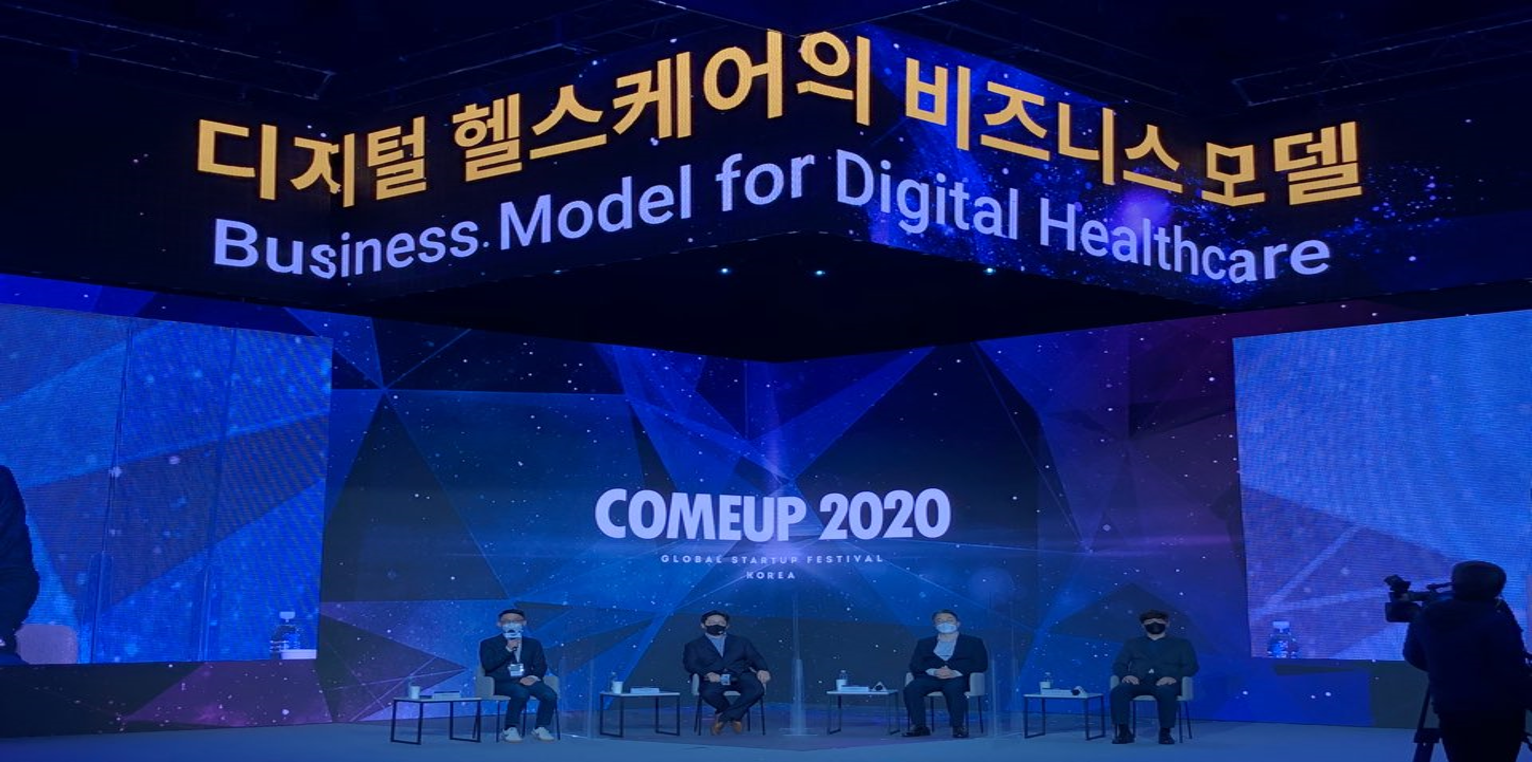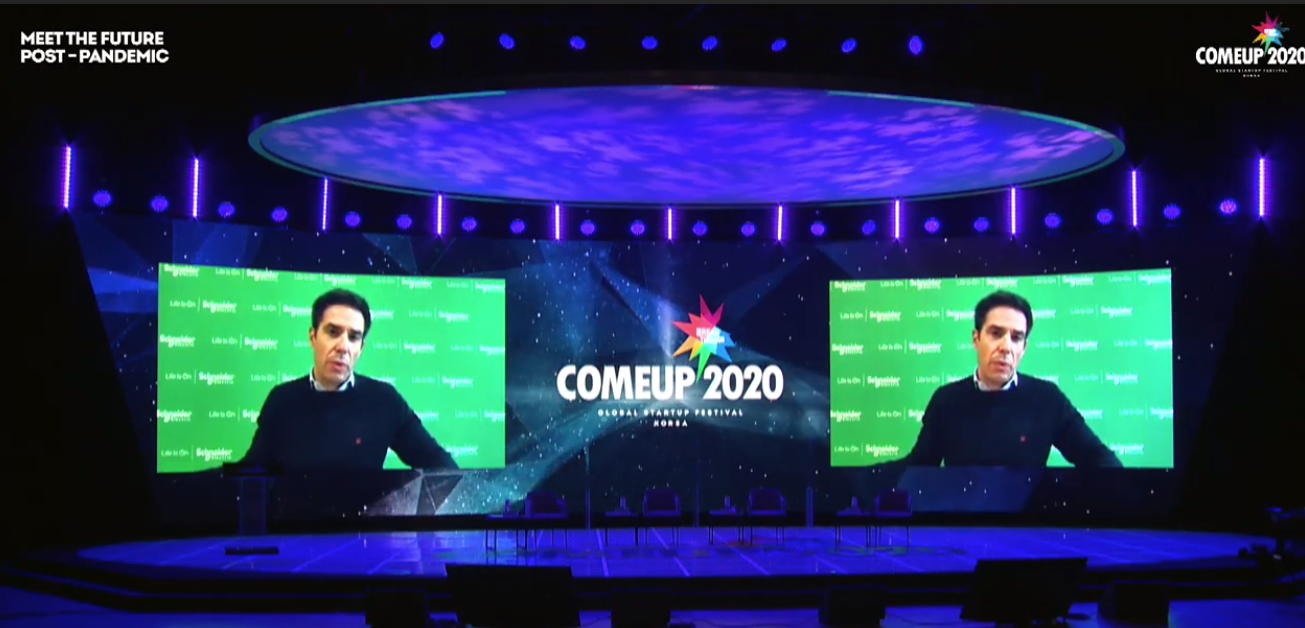The schedule for the first day of COMEUP 2020, a global startup festival, has come to an end. 「COMEUP 2020」 Organizing Committee (Chairperson of the Private Committee “Kurly” Sophie Kim) and Korea Institute of Startup & Entrepreneurship Development (Chairperson Kim Kwang Hyon) have announced that the number of cumulative broadcast views on the first day of the 「COMEUP 2020」 conference exceeded 50,000 as of 18:00.
Until COMEUP’s very opening ceremony, a significant amount of interest and expectations were gathered with more than 7,5000 pre-registrants and 400,000 cumulative visits to the website. Despite several online events held recently experienced issues of no-show visitors, visitors gathered for COMEUP to about twice the number of pre-registrants with over 40,000 views.
Considering the time differences worldwide, the number of viewers is expected to increase significantly during the night as well. In addition, COMEUP has already generated a higher number of attendees than the visitors for last year’s event, which was held offline and gathered around 21,000 attendees.
In the afternoon of the COMEUP conference, heated discussions on “digital healthcare” and “environment” were held with Brandon Suh, CEO of “Lunit,” a Korean medical artificial intelligence (AI) startup, Emmanuel Lagarrigue, CIO of “Schneider Electric,” a global energy management company, and others as speakers and panelists.
<Special Discussion (Breaktime)>

Prior to the start of the full-fledged afternoon schedule every day, about an hour of break time is utilized to hold a special discussion by inviting one globally recognized speaker representing the startup ecosystem.
The special discussion of the first day was held by Miika Huttunen, CEO of “Slush,” a global startup conference. The discussion was held in the form of a conversation with Jung Hyun Wook, COMEUP secretary general, and CEO Miika Huttunen, and COMEUP visitors could watch it in real-time.
CEO Miika Huttunen explained Slush’s philosophy and mission, along with the strategy that led Slush to grow to its present scale. “Slush” is based on the idea that entrepreneurship is the most effective way to change the world, and its main mission is to generate and support more entrepreneurs.
Likewise, global startup festivals such as Slush and COMEUP are events that provide significant support to the startup ecosystem as they bring people who desire each other into one place.
He diagnosed that essential elements for the growth of the founder, such as capital, talent, advice, and insight, could gather in one place under the name of the festival to generate new meetings and exchanges.
<The First Day of the Main Conference (11-19) Afternoon – Digital Healthcare and Environment Sectors>
In the afternoon, heated discussions on “digital healthcare” and “environment” were held with Brandon Suh, CEO of “Lunit,” a Korean medical artificial intelligence (AI) startup, Emmanuel Lagarrigue, CIO of “Schneider Electric,” a global energy management company, and others as speakers and panelists.
? Digital Healthcare Sector
| Category | Keynote Speech
(14:00~14:40) |
Discussion 1
(14:40~15:20) |
Discussion 2
(15:20~16:00) |
| Topic | The Behavior Change Revolution | Business Model for Digital Healthcare | The Present and Future of the Untact Healthcare Industry |
| Participants | Jung Sae Ju (Noom) | (Moderator) Kim Chi Won (Seoul Wise Hospital)
(Panel) Brandon Suh (Lunit) (Panel) Oh Jung Taek (E2E Health) (Panel) Jack Lee (Sky Labs) (Panel) Alex Waldron (Pear Therapeutics) |
(Moderator) Choi Yoon Sup (DHP)
(Panel) Kim Ki Hwan (MEDIHERE) (Panel) Ban Ho Young (Neofect) (Panel) Choi Doo Ah (Huray Positive) (Panel) Robbie Cape (98point6) |
Following the keynote speech from Jung Sae Ju, CEO of Noom, a healthcare startup based on behavioral science, discussions were held on the topics of “Business Model for Digital Healthcare” and “The Present and Future of the Untact Healthcare Industry.”
In his keynote speech on the topic of “The Behavior Change Revolution,” CEO Jung Sae Ju introduced Noom’s service and success factors. He conveyed the digital healthcare trend, explaining, “People’s interest in a healthy lifestyle has increased since COVID-19, and as the non-face-to-face era has arrived, the digital healthcare sector, such as telemedicine, has been achieving even more rapid innovation and growth.”
In the discussion on “Business Model for Digital Healthcare” that followed, CEOs of both domestic and international healthcare startups such as Lunit in Korea and Pear Therapeutics in the US have participated as panelists. They shared their current and predicted business models three years following COVID-19, and they emphasized the importance of having a business model that can provide value to users on top of good products and services in the digital healthcare sector.
In addition, the panelists emphasized their background of starting a business overseas and the factors to consider when expanding overseas for the startups interested in entering the overseas market.
In the discussion on “The Present and Future of the Untact Healthcare Industry” that followed, a conversation was progressed on the ripple effect and regulation of COVID-19 on the non-face-to-face healthcare sector.
The panelists have explained that people’s perception of telemedicine has transformed and that the number of consumers who feel the need for it has increased. They predicted that the telemedicine industry, which digitally connects doctors and patients, will grow even faster after the COVID-19 pandemic.
Likewise, a discussion was held on the effectiveness and importance of systems for deregulation such as the regulatory sandbox and special regulatory free zones in terms of sustainability of industrial growth.
<Keynote Speech and Panel Talk in the Digital Healthcare Sector>



<Environment Sector>
| Category | Keynote Speech
(14:00~14:40) |
Discussion 1
(14:40~15:20) |
Discussion 2
(15:20~16:00) |
| Topic | Climate Change, the Biggest Threat We Face | Startup, VC, Corporate: Building a Consensus for Cleantech 2.0 | Investing in Building Back Better Post Pandemic: Cities, Energy and Technology Nexus |
| Participants | Emmanuel Lagarrigue
(Schneider Electric) |
(Moderator) Kwak Won Cheol (GS)
(Panel) Steve Oh (INNERBOTTLE) (Panel) Yoon Tae Hwan (Root Energy) (Panel) Je Hyun Joo (Yellowdog) |
(Moderator) Mushtaq Ahmed Memon (United Nations Environment Programme)(Panel) Alexander Rozenfeld (Climate Impact Capital) (Panel) Craig Lawrence (Panel) Eli A. Goldstein |
On the topic of “Climate Change, the Biggest Threat We Face,” a discussion was held on the topics of “Startup, VC, Corporate: Building a Consensus for Cleantech 2.0” and “Investing in Building Back Better Post Pandemic: Cities, Energy and Technology Nexus” along with the keynote speech of Emmanuel Lagarrigue, CIO of Schneider Electric.
In the keynote speech by CIO Emmanuel Lagarrigue, he explained that “Schneider Electric is promoting microgrids and electric vehicle charging stations as its flagship industries in response to climate change, and is continuing to collaborate with startups to secure the future of green.”
However, while pointing out that the reduction in carbon dioxide was only 8% despite the effects of COVID-19, he emphasized that “there is a need for a radical way to respond to climate change, and the plans to build a sustainable supply chain is essential.”
Je Hyun Joo Je, CEO of Yellowdog, who participated in the “Startup, VC, Corporate: Building a Consensus for Cleantech 2.0” discussion, explained, “VC investment in cleantech has been actively made since the late 2010s. VC investment as of 2019 was $16 billion, 40 times higher than that of 2013, and it is expected to experience faster growth in the future.”
Steve Oh, CEO of INNERBOTTLE, said, “It is difficult for a cleantech startup company making new attempts to grow from Series A to Series B.” Yoon Tae Hwan, CEO of Root Energy, explained, “Since the domestic cleantech market has only recently been established, it is my hope that the government establishes predictable policies to generate a cleantech ecosystem.”
Finally, Alexander Rozenfeld, the managing director of Climate Impact Capital, participated in the discussion of “Investing in Building Back Better Post Pandemic: Cities, Energy and Technology Nexus.” He indicated that “popularization and digitalization have risen in the energy sector following COVID-19.”
Craig Lawrence, managing partner of Energy Transition Ventures, said, “I believe the COVID crisis will play a role in accelerating the transition to a low-carbon energy system,” while asking the startups, “Most of the successful startups in the US are re-founders; do not be afraid of failure and continue to push forward as experience is more important than education.”
Eli A. Goldstein, CEO of SkyCool Systems, said, “I think COVID-19 has brought about the biggest change in energy-related projects and financing environments in the energy sector.”


The Main Conference, which began today (the 19th) and lasts until this Saturday (the 21st), can be watched live through the “COMEUP 2020 Official Website” (www.kcomeup.com) as well as the COMEUP YouTube channel (www.youtube.com/c/KStartupWeekComeUp) from anywhere in the world. Information regarding the 7 special events being held concurrently with COMEUP 2020 is available on the website.
<The Second Day of the Main Conference (11-20))>
- Topic: Work (Open Innovation, AI & Robot, Remote Work, Manufacturing)
Day 2 (11-20) of the conference will focus on “Work,” and it is planned with the topic of “Open Innovation” and “AI & Robot” in the morning, and “Remote Work” and “Manufacturing” in the afternoon.
Professor Kim Jung Sang Kim from Duke University, who is the co-founder and CTO of IonQ, Professor Henry Chesbrough, the world’s leading authority on open innovation, and others will participate to carry out lectures and in-depth discussions.
※ Related Post (Korean) : 컴업2020, 디지털 헬스케어부터 환경 분야 학술대회까지, 1일차 성공적 마무리
https://video.venturesquare.net/archives/live/2170?view=stream&channel=1

You must be logged in to post a comment.